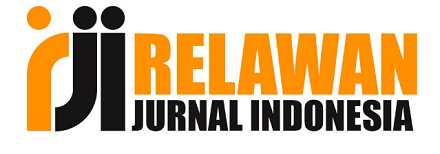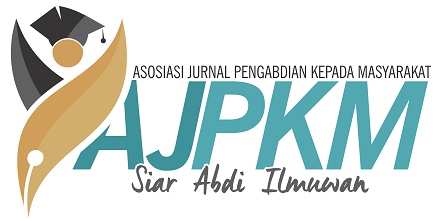Penyusunan soal tes bermuatan lower dan higher-order thinking skills pada guru SMP
DOI:
https://doi.org/10.33474/jipemas.v4i3.10121Keywords:
teacher competence, LOTS, HOTS, test, assessmentAbstract
Training for Junior High School’s teacher on constructing LOTS and HOTS questions aims to (1)improve teacher competence on designing lower and higher-order thinking skills assessment; and (2)provide teachers with an understanding of the formulation of successful test questions and the evaluation criteria set by the Ministry of Education and Culture. The training was given to 31 teachers of SMP IT Cendikia Takengon in stages; (1) pre-training observations; (2) tutorial and practice; (3) assistance; and (4) evaluation. The training conducted on August 14 to October 20, 2020. Based on the results of evaluation and reflection, it is found that; (1) teachers were able to write questions, both multiple-choice and essays questions, following the principles of writing questions; (2) teachers were able to understand and distinguish between cognitive levels (levels 1,2 and 3) and cognitive dimension (C1, C2, C3, C4, C5, and C6); (4) teachers generally have been able to compile HOTS questions although some teachers still have difficulty designing HOTS questions; (5) Teachers understand that HOTS questions are not difficult questions, but level 3 questions that involve reasoning; and (6) teachers understand that structured and non-structured test if properly designed have the potential to measure both lower and higher-order thinking skills.References
Anderson, L. ., Krathwohl, D. ., Airasian, P. ., Cruikshank, K. ., Mayer, R. ., Pintrich, P. ., Raths, J. ., & Wittrock, M. . (2001). A Taxonomy for Learning, Teaching, and Assessing: A Revision of Bloom’s Taxonomy of Educational Objectives. In Longman.
Bloom, B. S., Engelheart, M. D., Furst, E. J., Walker H, H., & Krathwohl, D. . (1956). Taxonomy of Educational Objectives: The Classification of Educational Goals. Handbook 1. Cognitive Domain. In Longman, Green and Co Ltd (1st ed.). https://doi.org/10.1300/J104v03n01_03
Dewi, T. U., & Handayani, S. L. (2020). Pelatihan Pembuatan Soal Berbasis Digital Bagi Guru SMA di Era Revolusi Industri 4.0. Jurnal Inovasi Hasil Pengabdian Masyarakat (JIPEMAS), 3(2), 146–153. https://doi.org/10.33474/jipemas.v3i2.6697
Gradini, E. (2019). Menilik Konsep Kemampuan Berpikir Tingkat Tinggi (Higher Order Thingking Skills) dalam Pembelajaran Matematika. Jurnal Numecary, 6(2), 189–203. https://doi.org/10.46244/numeracy.v6i2.475
Gradini, E., Firmansyah B, & Noviani, J. (2018). Menakar Kemampuan Berpikir Tingkat Tinggi Calon Guru Matematika Melalui Level HOTS Marzano. Eduma: Mathematics Teaching and Learning, 7(2), 41–48. https://syekhnurjati.ac.id/jurnal/index.php/eduma/article/view/3357
Hidayati, A. U. (2017). Melatih Keterampilan Berfikir Tingkat Tinggi Dalam Pembelajran Matematika Pada Siswa Sekolah Dasar. TERAMPIL Pendidikan Dan Pebelajaran Dasar, 4(20), 143–156. https://doi.org/10.24042/terampil.v4i2.2222
Lestari, A., Saepulrohman, A., & Hamdu, G. (2016). Pengembangan Soal Tes Berbasis HOTS Pada Model Pembelajaran Latihan Penelitian Di Sekolah Dasar. PEDADIDAKTIKA: Jurnal Ilmiah Pendidikan Guru Sekolah Dasar, 3(1), 74–83. https://ejournal.upi.edu/index.php/pedadidaktika/article/view/4801
Lewis, A., Smith, D., & Lewis, A. (2009). Defining Higher Order Thinking. Theory Into Practice, 32(March 2015), 131–137. https://doi.org/10.1080/00405849309543588
McMillan, J. H., Venable, J. C., & Varier, D. (2013). Studies of the effect of formative assessment on student achievement: So much more is needed. Practical Assessment, Research and Evaluation, 18(2), 1–15. https://doi.org/10.7275/tmwm-7792
Miarsyah, M., & Ristanto, R. H. (2019). Memberdayakan Keterampilan Mengembangkan Soal Hots pada Guru Biologi di Kabupaten Bekasi. BAKTIMAS : Jurnal Pengabdian Pada Masyarakat, 1(4), 151–159. https://doi.org/10.32672/btm.v1i4.1718
Newmann, F. M. (1991). Classroom Thoughtfulness and Students’ Higher Order Thinking: Common Indicators and Diverse Social Studies Courses. Theory and Research in Social Education, 19(4), 410–433. https://doi.org/10.1080/00933104.1991.10505649
Phelps, R. P. (2012). The Effect of Testing on Student Achievement, 1910-2010. International Journal of Testing, 12(1), 21–43. https://doi.org/10.1080/15305058.2011.602920
Popham, W. J. (2003). Test better, teach better: the instructional role of assessment. In ASCD (Vol. 42, Issue 01). https://doi.org/10.5860/choice.42-0445
Pusat Penilaian Pendidikan. (2017). Pedoman Penulisan Soal SMP/MTs (K. P. dan K. Pusat Penilaian Pendidikan, Badan Penelitian dan Pengembangan (ed.)).
Stanley, T., & Moore, B. (2013). Critical Thinking and Formative Assessments. In Critical Thinking and Formative Assessments. https://doi.org/10.4324/9781315856261
Suyitno, A. (2013). Mengembangkan Kemampuan Guru Matematika Dalam Menyusun Soal Bermuatan Literasi Matematika Sebagai Wujud Implementasi Kurikulum 2013. AKSIOMA Jurnal Matematika Dan Pendidikan Matematika, 4(2). https://doi.org/10.26877/aks.v4i2/Septembe.552
Wicaksono, A. G., & Jumanto, J. (2019). Pengembangan Soal Higher Order Thinking Skills (Hots) Bagi Guru Sekolah Dasar. Adi Widya : Jurnal Pengabdian Masyarakat, 3(2), 14–20. https://doi.org/10.33061/awpm.v3i2.3352
Widana, I. wayan, Adi, S., Herdiyanto, Abdi, J., Marsito, & Istiqomah. (2019). Modul Penyusunan Soal HOTS Matematika. Direktorat Pembinaan Sekolah Menengah Atas.
Wiliam, D., Lee, C., Harrison, C., & Black, P. (2004). Teachers developing assessment for learning: Impact on student achievement. Assessment in Education: Principles, Policy and Practice, 11(1), 49–65. https://doi.org/10.1080/0969594042000208994
Wilson, L. O. (2016). Anderson and Krathwohl Bloom’s Taxonomy Revised: Understanding the New Version of Bloom’s Taxonomy. In The Second Principle (pp. 1–8).
Downloads
Published
How to Cite
Issue
Section
License
.









